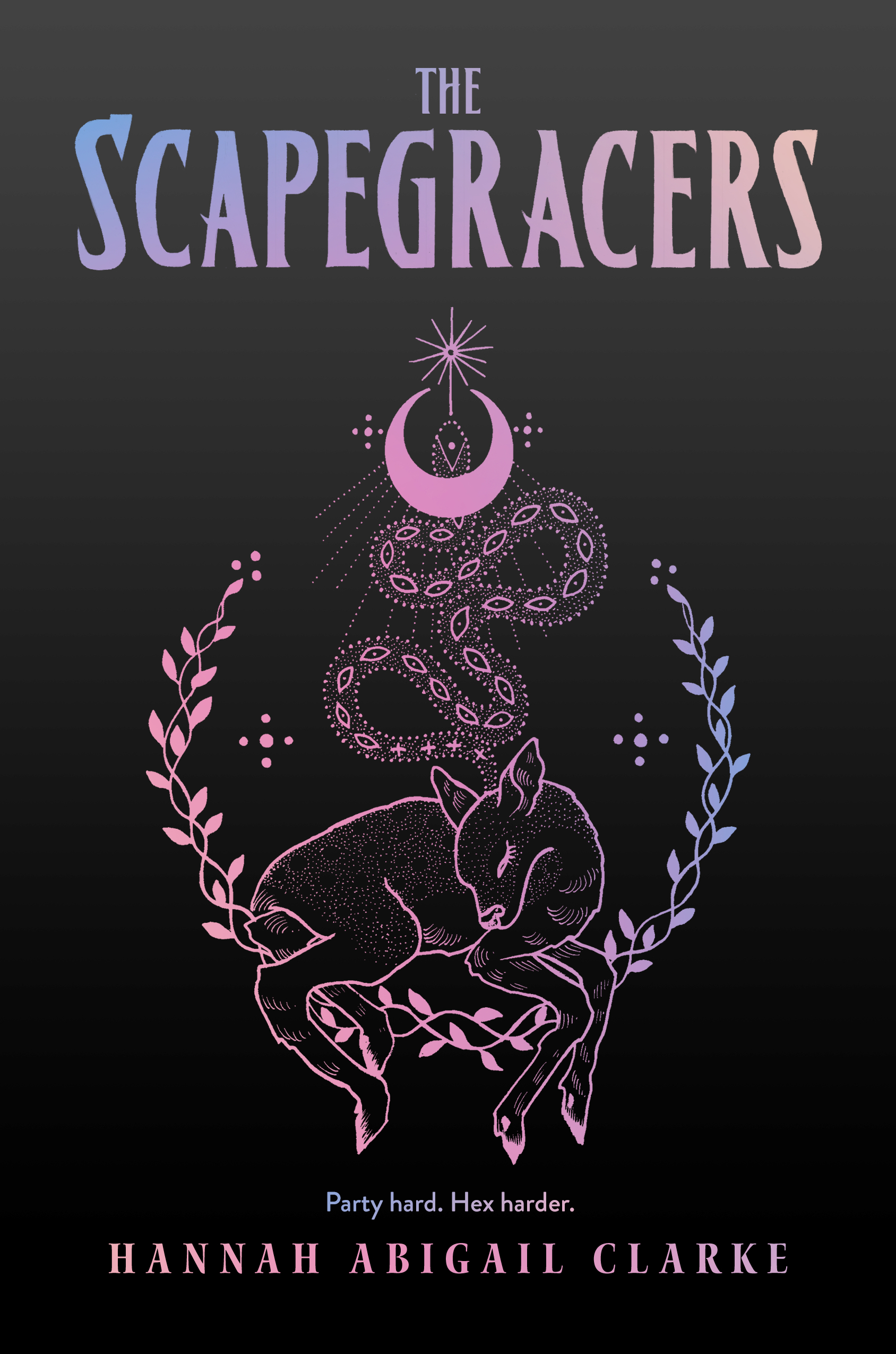
A Review of The Scapegracers by Hannah Abigail Clarke
Words By Viengsamai Fetters
Published September 15, 2020 by Erewhon Books
My favorite book growing up was Cornelia Funke’s The Thief Lord. It enchanted me with its unexplained magic, the vibrance and agency of the main characters, and—in what is retrospectively a signal of my own young queerness—the kids’ found family. The book felt alive with untamable energy that I’ve found rarely before or since. However, for the first time since childhood, I’ve found a book that has everything I loved about The Thief Lord and more. I hadn’t thought about Funke in years, but The Scapegracers plunged its long fingers into my memory and pulled The Thief Lord back to its place of honor in my mental bookcase, a spot the two books now share.
The Scapegracers is the first installment of a trilogy about growing up, found family, powerful magic, and the sheer ferality of youth unleashed. It’s a stunning debut from Hannah Abigail Clarke (they/he), whose every word crawls on the page itching to escape. It feels almost sacrilegious to read passages aloud, as though the very sound of Clarke’s atmospheric language will awaken something not entirely meant for the daylight of decent society.
But The Scapegracers isn’t meant for decent society. It’s meant for those of us on the outskirts, who crave to be seen but perhaps secretly fear revealing ourselves. There’s something about the experience of reading this book that’s tenderly monstrous in the most intimate of ways.
Sideways Pike is a teenager who, true to her name, has never fit in, and she’s convinced herself that she never really wanted to. She’s a witch and a lesbian, and there aren’t many of either at her high school. When the most popular girls in school offer her $40 for a little magic at their Halloween party, none of them could have anticipated how it would go wrong—or how it would bring them together. Sideways finds herself an unlikely member of a fierce group of friends, and the four of them discover that, together, their magic runs deep. And it’s in danger.
Few books explore the complexity of youth friendship in the way this one does, roiling and recoiling and rebounding into emotions that spill over. Clarke’s writing is dizzying at times, giving the reader that unsteady giddiness of finding your people when you always thought you’d be alone. Sideways, Daisy, Jing, and Yates are far from perfect, but they have a ferocious love for each other that, at first, feels out of place. As the story continues, the reader catches tantalizing glimpses of relationships and shared experiences that draw this new coven to one another, and the diverse cast of characters gain a subtle new depth.
Clarke crafts a refreshingly queer story in every aspect. The book has a wild air, as though the characters themselves have agency apart from the ink on the page, but, oddly, seems to respect their boundaries. Readers will get the sense that there’s much more to the characters than they let on and, in return, the unfolding mysteries of real-life relationships balance with a natural unpredictability. The result is electrifying. Clarke manages to hold the tension between their lovingly chosen words and seemingly uncontrolled chaos in a manner that sits comfortably in the in-between spaces that queer folk know so well.
Even on the grand scale, this carefully constructed story skirts around traditional structures, opting instead for a distinctly queer ebb and flow; rather than rising to a single climax, the plot moves in waves, each bigger but no less important or enjoyable than the last. As Sideways grows into herself and her found family, the waves grow stronger, and I suspect that the next books in the series will as well.
Despite the high stakes of the plotline, Clarke easily balances the action of the story, the stress of high school, and the tentative, then unbridled, joy of being yourself around people who love you. That joy is part of the magic of The Scapegracers, just as much as any witchcraft.